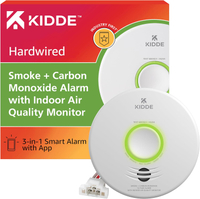Best smart smoke detectors in 2025
The best smart smoke detectors add a layer of connectivity to this essential device in your home.
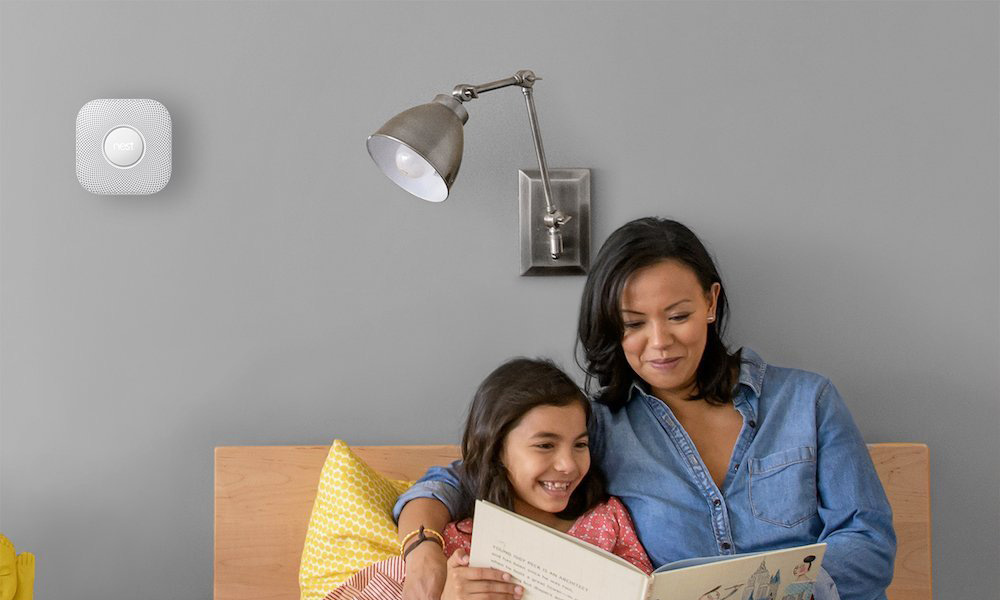
The best smart smoke detectors go beyond sounding an alarm inside your house— they can also instantly send an alert to your smartphone so you can call emergency services. That extra warning time can mean the difference from light damage to a total loss in an emergency.
Sadly at the moment, there's no one smart smoke detector that really stands out. Our favorite for a few years running has been the Nest Protect. It's the most full-featured alarm, blaring out a loud siren and telling you where the problem is. It will also send out a warning that it's about to go off, so you can silence it if all you're doing is cooking up some steaks. We also like that it performs a self-check every month, and can be linked with other Nest Protects. It has a 10-year battery, too.
However, Google announced that it's discontinuing the Nest Protect, and will instead be partnering with First Alert for a new smart smoke and carbon monoxide detector. The new device, which will cost $129 when it's available hopefully by late April, will replicate much of what the Nest Protect does. It will, though, only work within the Google Home ecosystem.
If you already have non-smart smoke detectors in your home, the least expensive route to take is to use a smart speaker to listen for the sound of a smoke alarm.
If you have one of the best Alexa speakers, you can sign up for Alexa Emergency Assist ($5.99/month, $59/year). When enabled, your Alexa smart speakers will listen for smoke and CO2 alarms, and will send you an alert on your smartphone if they hear a siren, as well as connect you with an urgent response agent.
Alternatively, if you have a Nest Aware subscription (starting at $6/month), you can set your Google Home speakers to listen for alarms, which will then send you an alert on your smartphone.
The Apple HomePod mini, as well as the Apple HomePod (2nd generation) can also listen for smoke and CO2 alarms, and send an alert to your phone. Unlike Alexa and Google Home, using this feature does not require a subscription.
Recent updates
Ring and Kidde are partnering up to release their own detector, which will cost $54.97 (smoke) and $74.97 (smoke & carbon monoxide). These models, which will be sold exclusively at The Home Depot, are wired-only. Ring is also launching a special professional monitoring service for these devices, which costs $5/month, which will alert emergency services in the case of an event.
The best smart smoke detectors you can buy today
Why you can trust Tom's Guide
Best overall
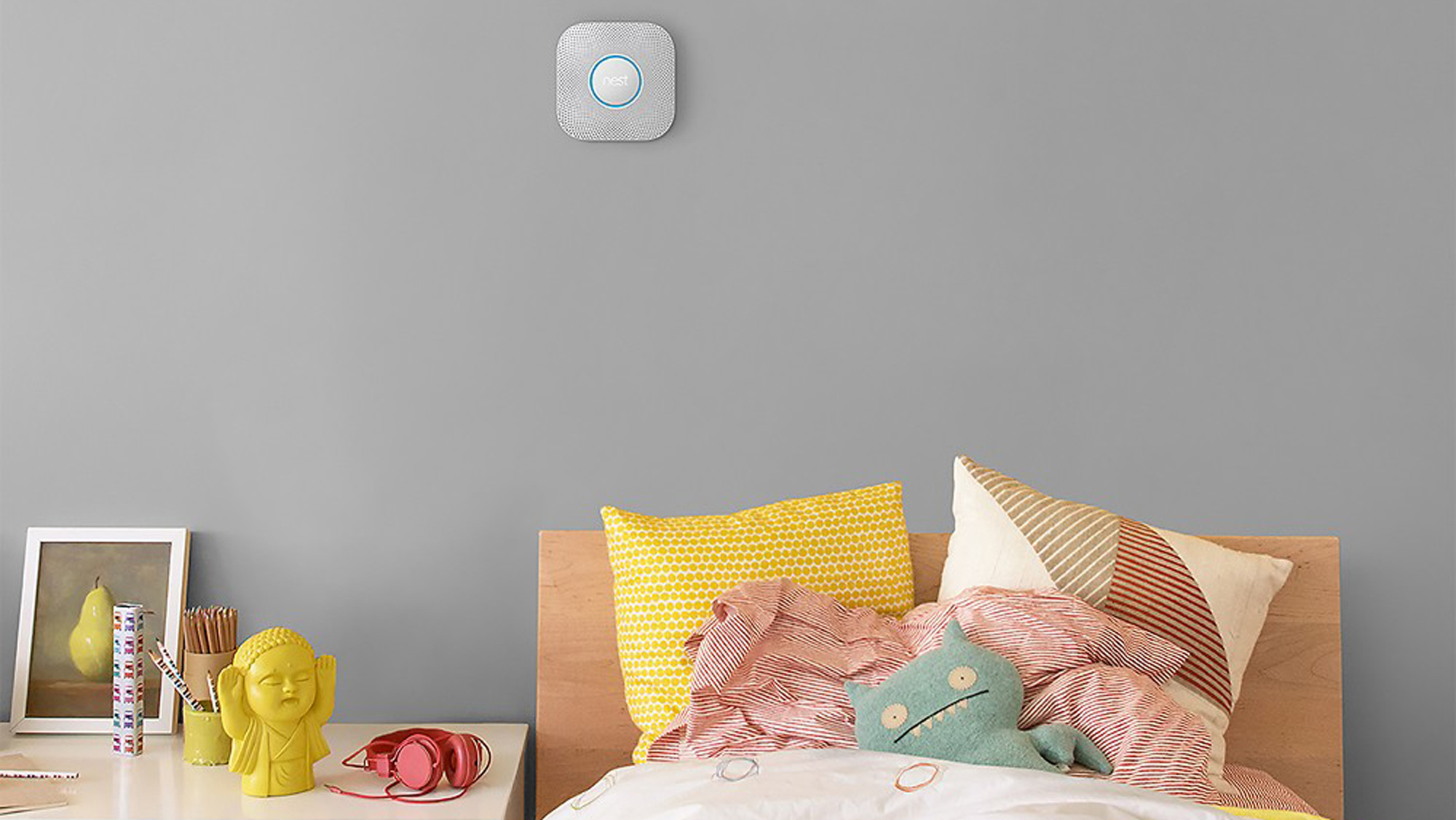

1. Nest Protect
Our expert review:
Specifications
Reasons to buy
Reasons to avoid
Nest’s smoke alarm detects both smoke and carbon monoxide. Should it sense either of these hazards, it will not only sound an alarm, but change the color of its bottom LED ring to give you a visual cue. The app notification will provide further context like what room the alert is coming from, and the nature of the alert.
The Nest Protect comes in both wired and battery-powered versions. If you have more than one in your home, and one goes off, the others will too, alerting you to the location of the fire.
When it originally launched in 2013, the Nest Protect used to work with a wider range of smart home devices, as well as IFTTT (If This Then That). However, some of that functionality has been lost.
For a time, Nest didn't even work with Google Home, but that functionality was restored to a degree in January 2025. If you're using the Public Preview of the Google Home app, you can receive critical safety alerts and heads-up notifications, run essential safety check ups, and hush alarms.
You can also connect the Nest Protect to HomeKit using the Starling Home Hub, one of the best smart home hubs we've tested. It's not an approved HomeKit device, but I found it works pretty well.
As mentioned, Google is discontinuing the Nest Protect, so if you like what it does, it's worth waiting for the First Alert smart smoke and carbon monoxide detector, which will cost $129 and should be available in late April.
Read our full Nest Protect review.
Best value
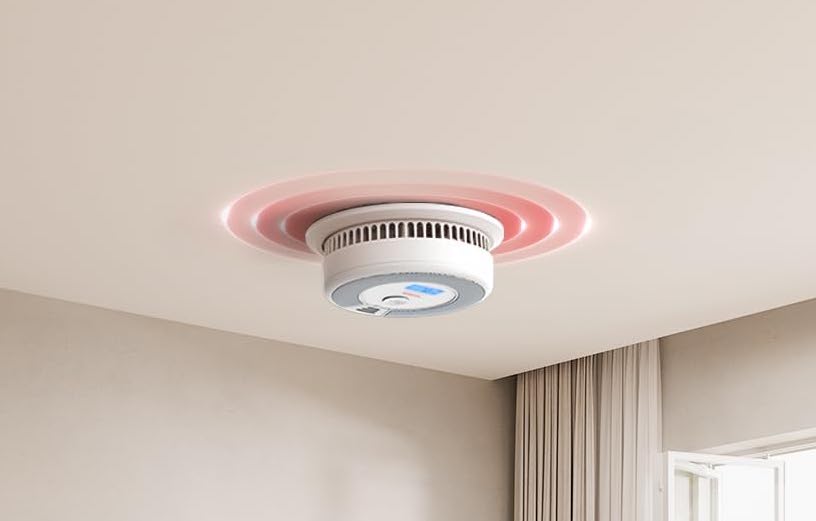
2. X-Sense Smart Smoke/Carbon Monoxide Detector Combo
Our expert review:
Specifications
Reasons to buy
Reasons to avoid
One feature I really like in a smart smoke detector is interconnectivity; that is, if one alarm goes off, they all go off, giving you a better chance of hearing that there's a problem. However, many of the best smart smoke detectors with this feature require them to be hardwired, which could be an issue in older homes.
Like the Nest Protect, the X-Sense Smart Smoke/Carbon Monoxide Detector Combo will activate all of its alarms if one of them senses trouble. And, they're battery-powered, so you can easily put them in any room you like. What's more, you get five alarms for just under $200, so you can affordably cover most of your house.
X-Sense's alarms are a bit different, in that they require you to first install a hub, which acts as a wireless bridge between the alarms and the cloud. Setting up the hub wasn't all that difficult, though, and installing the alarms and linking them to the hub was equally painless.
X-Sense's app is also a cinch to use, and provides real-time info on each alarm, its battery level, and if it's sensing anything. You can also use the app to configure each alarm in terms of volume and the tone it sends out.
However, none of X-Sense's smart smoke detectors have the option to be hardwired, which means that they may not be compatible with newer construction which requires at least one alarm to be hardwired.
Up to 12 people can connect to the app, so more than one person can get an alert if an alarm goes off. If you want extra peace of mind, you can also subscribe to X-Sense's professional monitoring service (powered by Noonlight), so emergency responders will be dispatched to your house in the event of a fire.
About the only thing I wish the X-Sense would have is a link to other smart home services, such as Alexa or Google Home. Otherwise, it's a pretty good value for the price.
Best for Alexa
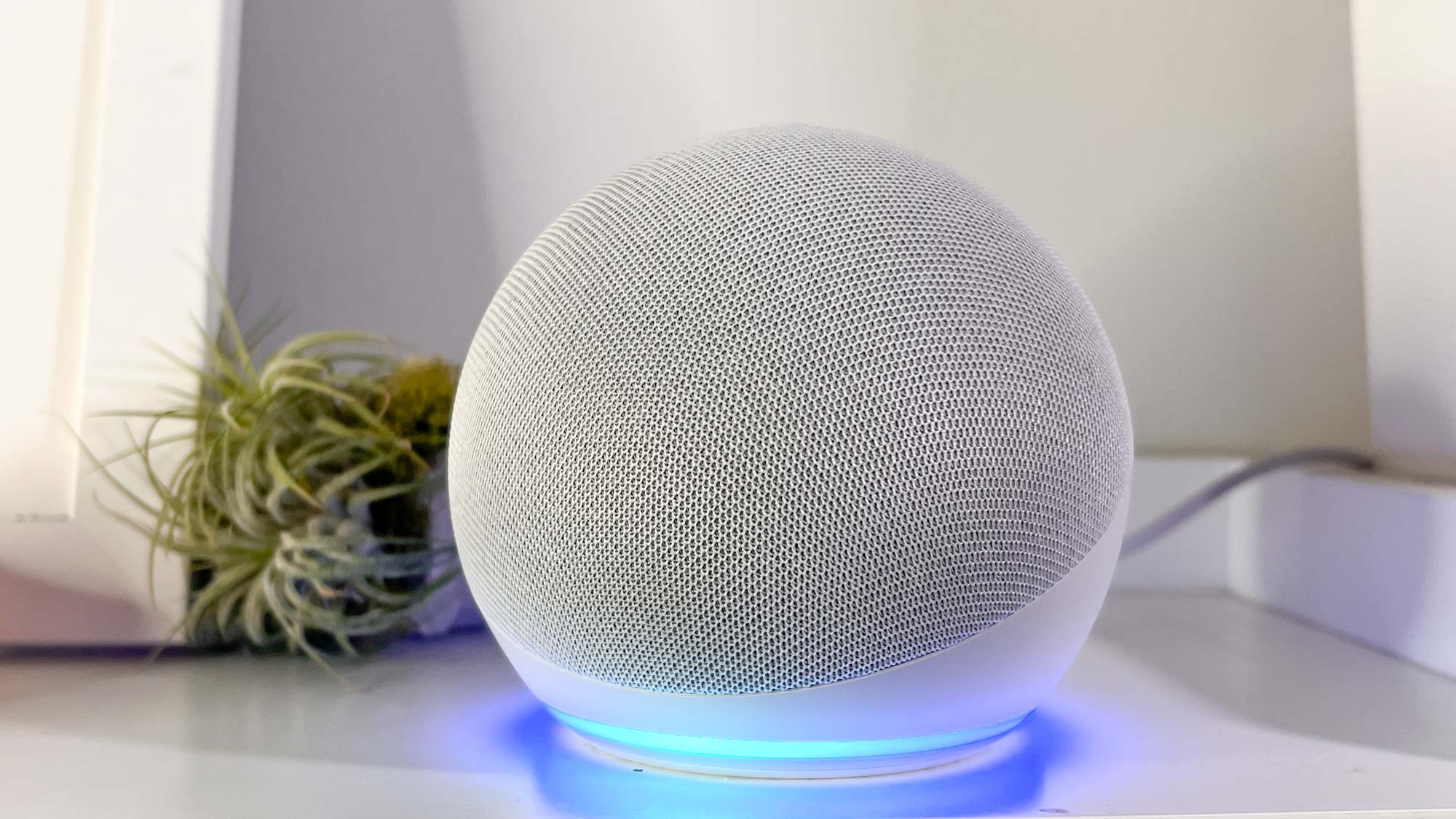

Specifications
Reasons to buy
Reasons to avoid
The Amazon Echo Dot doesn't have a smoke detector built in, but if you subscribe to Alexa Emergency Assist ($59/year), it can listen for smoke and CO2 detectors (as well as glass breaking), and alert you on your smartphone if if hears something. This way, you can keep your older smoke detectors, but still get a notification on your phone if you're away and something's amiss.
Apart from that, it's also a great little smart speaker on its own. For the price, the sound is more than good enough as a personal listening device. It also has presence and temperature sensors built in. and it can double as an eero Wi-Fi satellite, should you want to extend the reach of your mesh Wi-Fi system in your home.
Read our full Amazon Echo Dot review.
Best for HomeKit
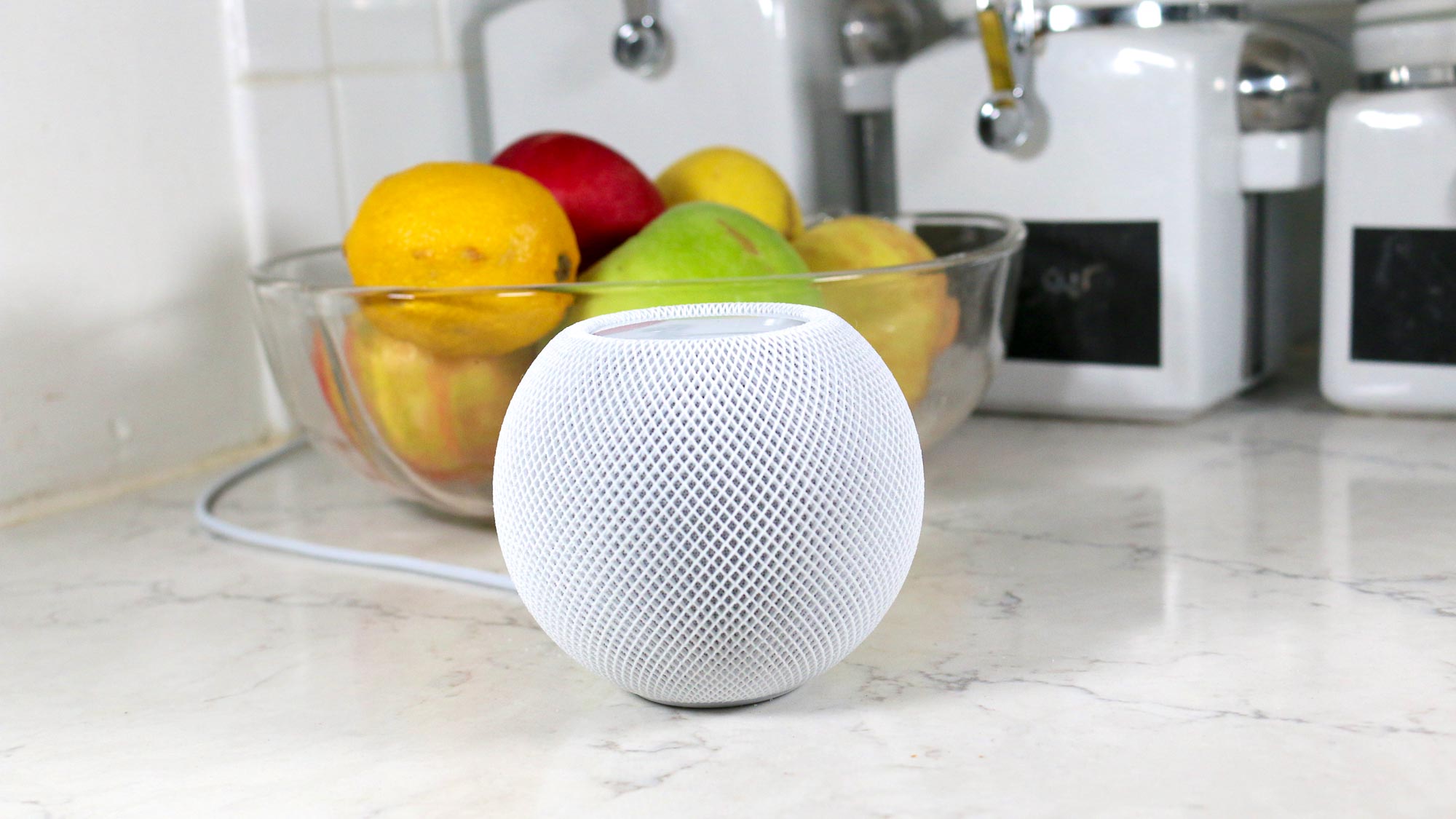

Specifications
Reasons to buy
Reasons to avoid
Like the Amazon Echo Dot, the Apple HomePod mini isn't a smart smoke detector in its own right, but it can listen for the sound of a smoke or carbon monoxide alarm going off, and then alert you via the HomeKit app on your phone, tablet, or Apple Watch. Even better: If you have a security camera on HomeKit, the notification will also display an image from that camera, making it easier to see if there's a true emergency, or if it's just a false alarm.
Apart from these abilities, the HomePod mini is a great little smart speaker in its own right, delivering great audio for its size, and bettering the Amazon Echo. It also has a temperature and humidity sensor, can be paired with another HomePod mini for stereo sound, and comes in a variety of colors.
The Apple HomePod 2 also has this ability, so Apple's premium smart speaker is worth checking out if you're looking for better-quality audio, and don't mind its higher asking price.
Read our full Apple HomePod mini review.
Best with Alexa built-in
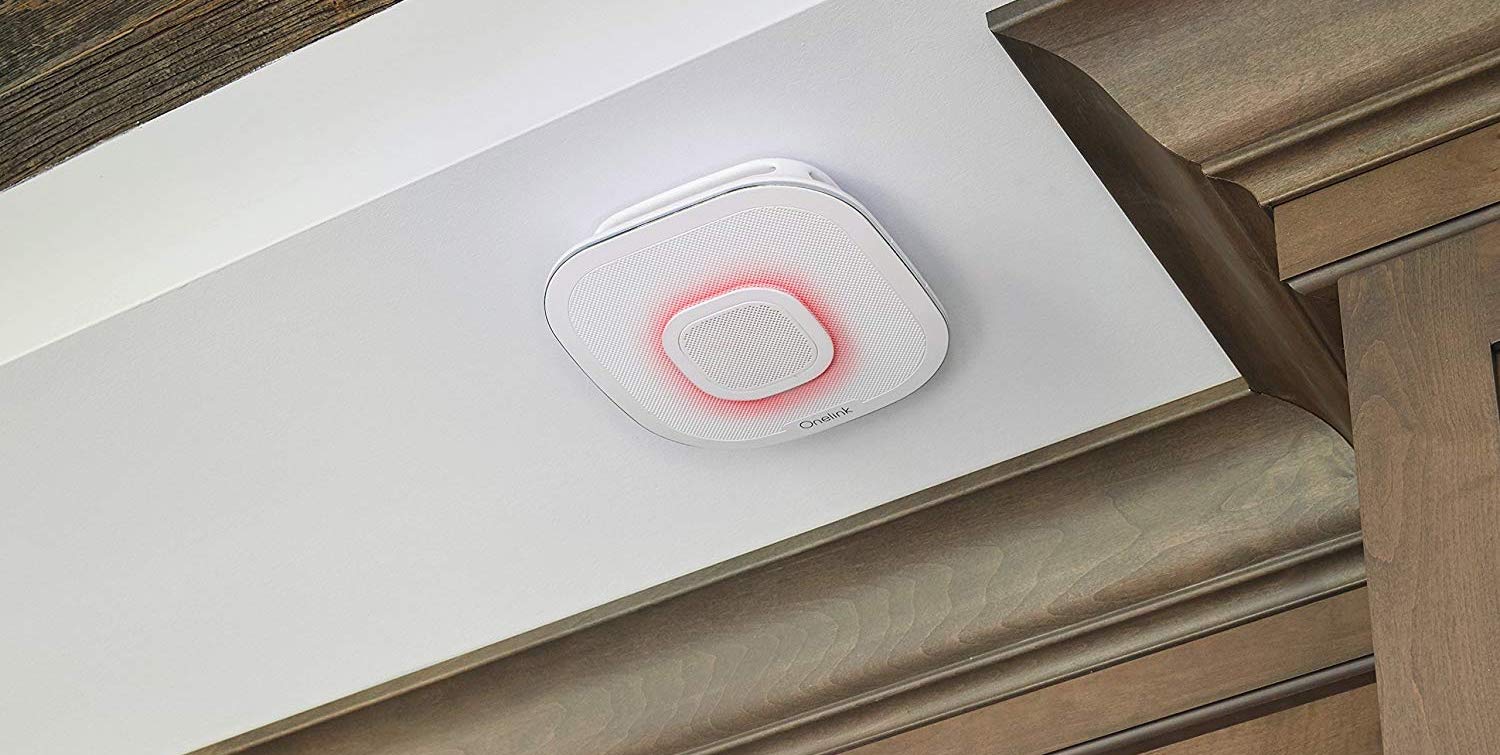
5. OneLink Safe & Sound
Our expert review:
Specifications
Reasons to buy
Reasons to avoid
Like the Nest Protect, the OneLink Safe & Sound detects smoke and carbon monoxide, sends an alert to your smartphone, and tells you the type and location of the fire or condition. But for those times when it's not warning you of fire, you can use it for a great many other things. With Amazon's Alexa (and a very competent 10-watt speaker), the Safe & Sound can play music, listen to audiobooks, and access Alexa's thousands of skills. (It's also compatible with Apple's HomeKit, as well as AirPlay).
However, the Safe & Sound requires a hard-wired connection, and we found that the location of these connections doesn't make it the most conducive for using all of Alexa's capabilities.
Read our full OneLink Safe & Sound review.
Best under $100
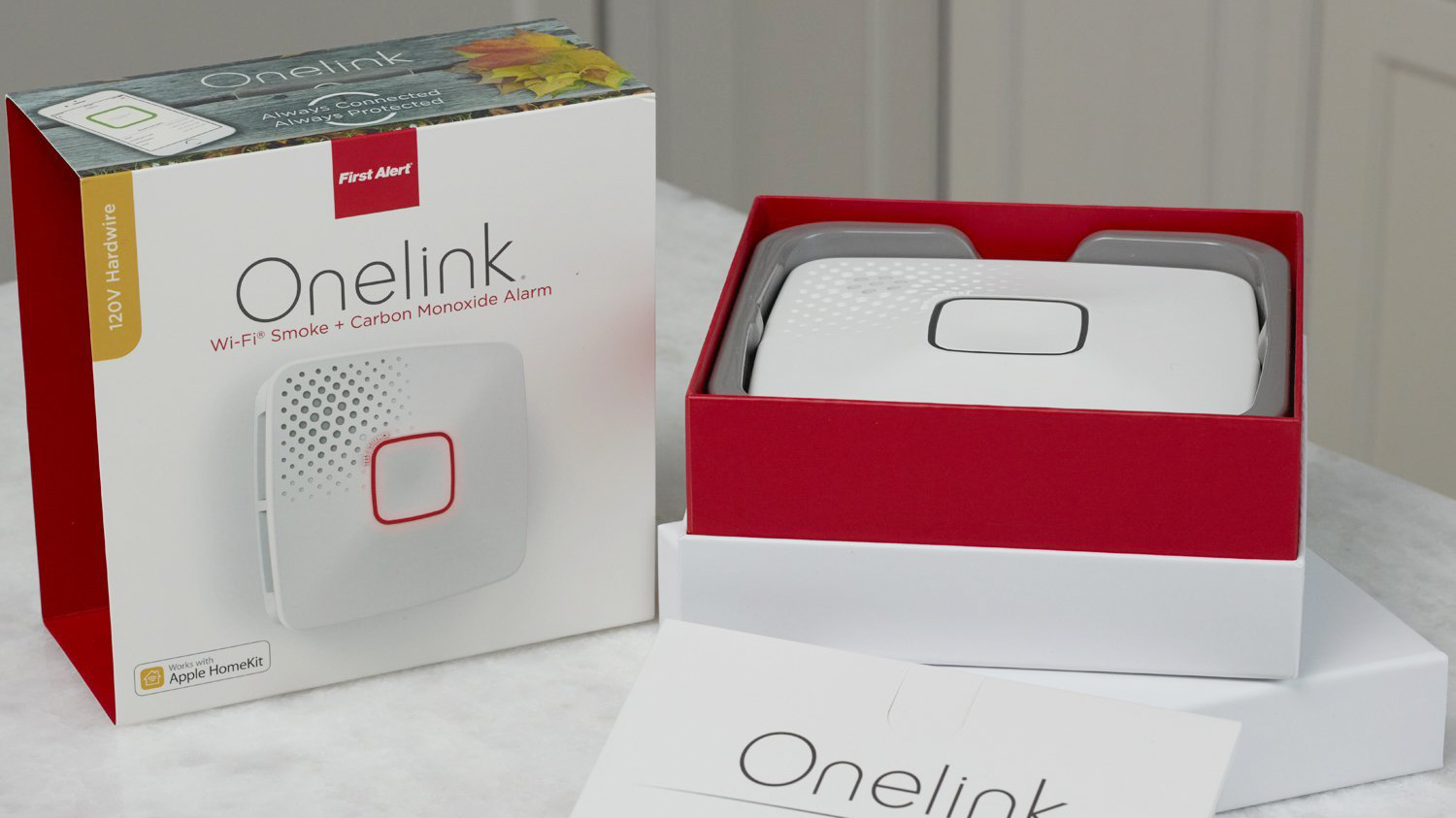
6. Onelink Smart Smoke + Carbon Monoxide (2nd Gen)
Our expert review:
Specifications
Reasons to buy
Reasons to avoid
The second-generation Onelink Smart Smoke + Carbon Monoxide alarm comes in battery and hardwired models. Similar to the Nest Protect, the Onelink will not only sound an alarm, but also specify the room affected and the type of alert: smoke or carbon monoxide. Also like the Nest Protect, if you have more than one Onelink alarm, you can interconnect them so that if one goes off, they all will.
An LED rings the middle of the alarm and changes color based on the alarm's status. Green and blue indicate that the alarm is starting up or in pairing mode. Yellow means there's a malfunction or a low battery, while red means there's a fire or smoke condition.
Onelink's alarm uses photoelectric technology, which is generally better at detecting smoldering fires than alarms that use ionization technology. However, the latter type are better at detecting fast-burning fires.
The Onelink can be connected to HomeKit and Alexa (but not Google Assistant), so you can ask both Siri and Amazon's voice assistant for the status of the smoke detector, but not much else. By contrast, if the Nest Protect detects fire or carbon monoxide, you can have it automatically turn on a security camera, open Lutron blinds, turn on Philips Hue lights, turn off your heat and more.
Setup should theoretically be easy—just scan a HomeKit code in the Onelink app—but it took a few tries to get it to work. The Onelink smoke and carbon monoxide alarm is good on its own, but the Nest Protect does more for the same price.
Also consider
This model not only detects smoke and carbon monoxide, but also monitors your air quality. It also connects to your Wi-Fi so you can receive alerts on your phone, and works with Alexa and Google Home. However, it requires a hardwired connection.
How to choose the best smart smoke detector
Fire and smoke detection sensors
All smoke detectors use one of two types of sensors to detect fires. Ionization-type sensors are best at detecting fast-burning fires, while photoelectric sensors are generally better at alerting you about smoldering, or slow-burning fires. You should have both types of alarms in your house. Smoke alarms such as the Nest Protect are designed to pick up both types of fires.
Carbon monoxide and other gas detection
Even if you don't have a fire in your home, you can be suffocated by carbon monoxide. A good detector should also protect you against this.
Hardwired vs. battery-powered
If your home has hardwired alarms, they will all be interconnected, so that if one goes off, they all will go off. Hardwired alarms also receive their power from your home, and only use batteries as backups. Standalone detectors run on batteries alone, so they may need to be replaced more often, and cannot signal each other in the event of an emergency (Nest's and OneLink's alarms are an exception to this). However, it's a lot easier to mount standalone smoke detectors where you need them.
Regardless of whether the alarms you purchase are battery-powered or wired, you should look to purchase alarms that are interconnected, as they're give you a much better chance of waking you in the event of a fire.
How we test the best smart smoke detectors
To determine which smart smoke detector is best, we first install them in our home, to see how easy it is to get up and running. We then evaluate their app and user interface, as they need to be intuitive even for non-techie homeowners. If the device is compatible with Alexa or Google Assistant, we also factor that into our review.
Where applicable, we also take into consideration the type of smoke and carbon monoxide detection built into the device. And, where possible, we use a simulated smoke spray to ensure that it actually works.
For greater detail on our testing methodology and rating system, please go to our how we test page for more information.
Smoke detector FAQs
What are the types of smoke detectors?
Most smoke detectors fall under one of two types:
Ionization-type sensors are best at detecting fast-burning fires.
Photoelectric sensors are generally better at alerting you about smoldering, or slow-burning fires. You should have both types of alarms in your house.
Additionally, can purchase smoke alarms that are either standalone or interconnected; most organizations recommend interconnected alarms, as in the event of a fire, every alarm in your home will sound, which increases the chance you'll hear it and escape safely.
As of July 2024, a new standard for smoke alarms was adopted by the National Institute of Standards and Technology, with the aim of reducing false alerts. Now, smoke detectors must be good at detecting both fast-burning and smoldering fires, but not be so sensitive as to be triggered by food cooking.
To pass this test, two standardized hamburger patties are broiled 10 feet away from a smoke alarm. If the alarm doesn't go off, it passes the test.
Where should I place a smoke detector?
The National Fire Protection Association recommends you should have smoke detectors mounted in the following locations:
- Inside and outside each bedroom in your house
- In your living room (or den or family room) or near the stairway to the upper level, or in both locations.
- In the basement, on the ceiling at the bottom of the stairs leading to the next level.
Smoke alarms should be mounted on the ceiling or high up on a wall. If you have a ceiling that has a peak, the smoke detector should be placed within three inches from the top, but at least four inches down from the peak.
Smoke alarms should also be mounted at least 10 feet from any cooking appliance to minimize false alerts.
Do not place a smoke detector near a window, door leading outside, or near a ventilation duct.
How often should you replace your smoke detectors?
A smoke detector should be replaced every 10 years, according to the U.S. Fire Administration. That's because the sensors inside the alarm deteriorate, and lose their effectiveness over time. However, you'll most likely have to replace the smoke detector's battery more than once over its lifespan.
How often should you test your smoke alarms?
In general, you should test your smoke alarms every month to make sure they still work. You can test most of them by pressing the center button; if you hear it sound, then you know it's working. Most smoke alarms will emit an intermittent beep when their battery is running low on power.
More from Tom's Guide
Best smart light bulbs | Best smart locks | Best video doorbells | Best water leak detectors | Best home security cameras | Best smart thermostats
Sign up to get the BEST of Tom's Guide direct to your inbox.
Get instant access to breaking news, the hottest reviews, great deals and helpful tips.

Michael A. Prospero is the U.S. Editor-in-Chief for Tom’s Guide. He oversees all evergreen content and oversees the Homes, Smart Home, and Fitness/Wearables categories for the site. In his spare time, he also tests out the latest drones, electric scooters, and smart home gadgets, such as video doorbells. Before his tenure at Tom's Guide, he was the Reviews Editor for Laptop Magazine, a reporter at Fast Company, the Times of Trenton, and, many eons back, an intern at George magazine. He received his undergraduate degree from Boston College, where he worked on the campus newspaper The Heights, and then attended the Columbia University school of Journalism. When he’s not testing out the latest running watch, electric scooter, or skiing or training for a marathon, he’s probably using the latest sous vide machine, smoker, or pizza oven, to the delight — or chagrin — of his family.
